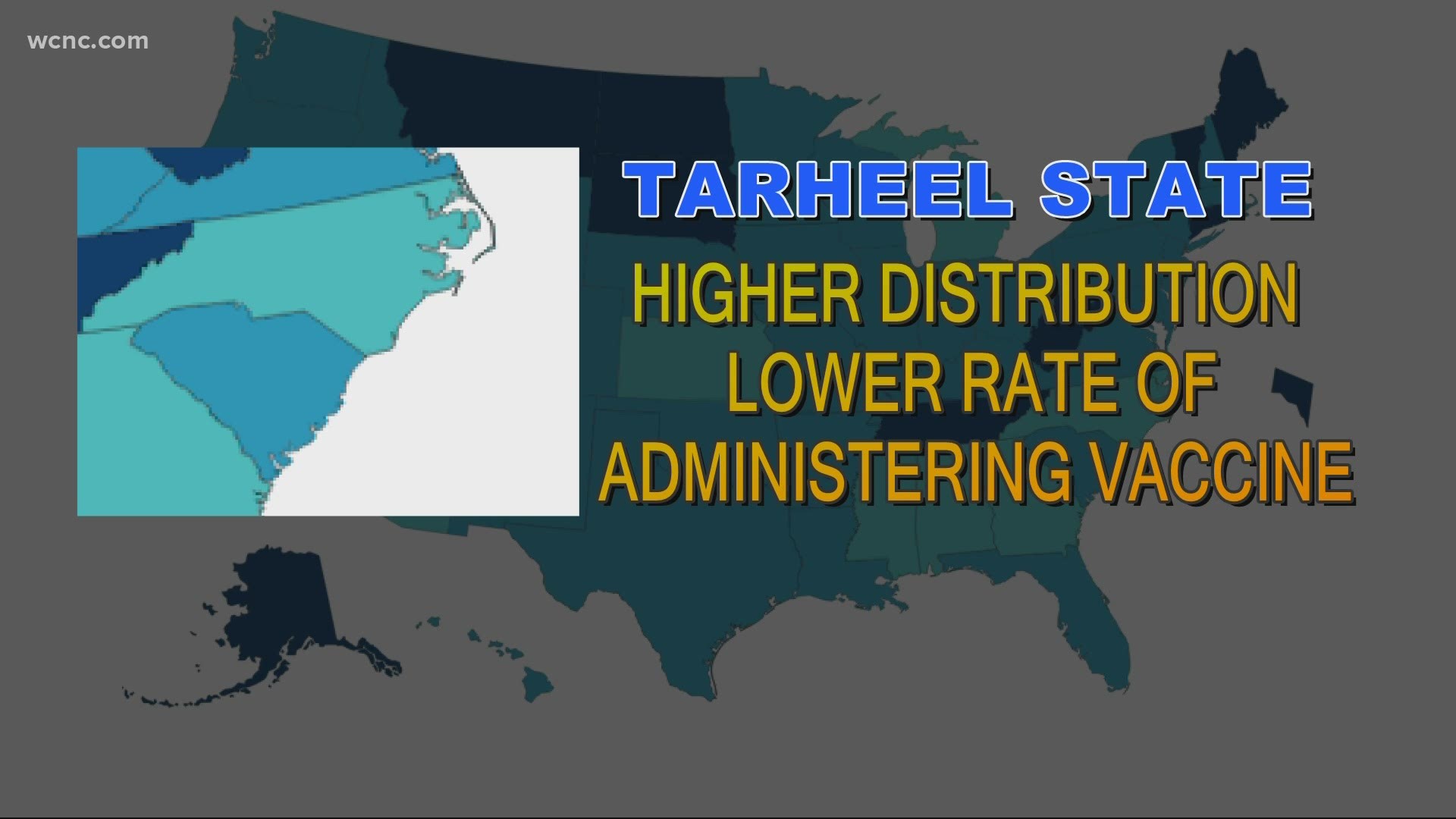CHARLOTTE, N.C. — Both North Carolina and South Carolina are off to a slow start when it comes to administering the COVID-19 vaccine.
According to the CDC, North Carolina ranks 44th for the number of vaccines administered per capita, and South Carolina ranks 43rd.
WCNC Charlotte Defender Alex Shabad spoke one-on-one with North Carolina Department of Health and Human Services Secretary Dr. Mandy Cohen to ask what's been doing done to speed up the rollout in the Tarheel State.
Secretary Cohen says a lot of the vaccine response depends on the actual medical provider. She says some have moved quickly, others have not.
Now, Secretary Cohen wants to support those who need it.
“I think everyone shares that sense of urgency,” Cohen said.
Cohen told WCNC Charlotte her goal initially was to quickly get COVID-19 vaccines to all 100 counties in the state. However, she says there’s been a wide variety in how health departments and hospitals have responded.
“Some partners are fantastic and got that vaccine into arms really quickly and others need more support and didn't do it as quickly,” Cohen said.
According to CDC data, the Carolinas are in the bottom 10 for vaccination rates in the country. South Carolina ranks 43rd in the country, and North Carolina ranks 44th.
The Tarheel State has a higher distribution rate than the Palmetto State, but a lower rate of administering the vaccine.
“We want to be seeing a higher rate of vaccination and I know folks are working towards that,” said Secretary Cohen.
“We are working at maximal speed,” said Dr. Raynard Washington, Mecklenburg County Deputy Health Director.
Dr. Washington says one of the main challenges is not getting enough lead time about the incoming shipments, so they can properly plan vaccine clinics.
“You can imagine trying outreach to several thousand individuals in the county, and get them all to set up their appointments, and get them in and through with a day's notice, is a bit of a challenge,” Washington said.
The Defenders team asked Cohen if there was a communication issue at the federal or state level or somewhere else.
“Alex, I think that is a great point the provider is making, and right now we don't get a lot of lead time from the federal government about what vaccine is coming to us,” Cohen said. “I think we’re working with them and it’s getting better.”
Now, North Carolina is pushing for hospitals and health departments to pick up the pace.
According to a letter from the North Carolina Department of Health and Human Services, future allocations of the vaccine will be based on how many vaccines providers administer and report to the state.
“We don't want vaccine sitting on the shelf, so if you have vaccine sitting on the shelf we are not going to send you more,” Cohen said. “Our job at the state is also to support everyone in being able to give those vaccines across our state and I think that's what we are working towards.”
Cohen said she’s expecting turnaround times for administering the vaccine to improve as the state enters phase 1B and people who are 75 years or older are allowed to get the vaccine.

